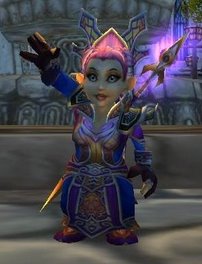For those of you who haven't seen the movie, I would suggest skipping the rest of this post, as it contains spoilers, watching the movie, and then coming back and reading the rest.
As I watched the movie for a second time, I was able to concentrate much more on the political significance of what was being said, rather than on my concern for Evey and my curiosity about V himself. And as I watched, I was struck by a number of things:
First, V is described by the media as a terrorist, yet the viewer sides with him when watching the film. Why? Because we see the person behind the label; we see a person who has been scarred and nearly killed by an oppressive government, and we think he is justified in doing what he's doing. If we think about the word "terrorist" in our society today, so often we don't think of "terrorists" as anything but that, often applying that same label to anyone who even just looks like them or shares their faith. This is hardly fair. Our ability to empathize with V should suggest a similar possibility with those labeled "terrorists" in our world, and offers a solution to our conflicts based on mutual understanding, rather than bloodshed and war.
My second point is perhaps more controversial, but I mean no disrespect by it. Rather, I just want to point out how V for Vendetta encourages the viewer to see the other side of 9/11, the side that would claim that the attacks on the World Trade Center and the Pentagon were completely justified, and were done to upset an unfair balance of power in the world. When Evey wakes up at V's mansion after passing out in distress, she asks him, "You really think that blowing up Parliament is going to make this country a better place?"
After a bit of conversation, V replies, "The building is a symbol, as is the act of destroying it. Symbols are given power by people; alone, a symbol is meaningless, but with enough people, blowing up a building can change the world."
When we think about the blowing up of Parliament in the movie, such a statement seems completely logical and justifiable. But what happens when we think about such a statement in the context of the United States? Now, I in no way want to say that the bombings of 9/11 were justifiable; the loss of life was horrific. Rather, I just want to suggest that our ability to understand V's perspective in V for Vendetta offers us a unique opportunity to consider the other side of the 9/11 bombings, and once again, offers us a possibility for understanding, rather than hate and war.
Finally, while the obvious heroes of the movie are V and Evey, and to a lesser degree, Inspector Finch, I would like to point out that without the act of one soldier, all their efforts would have been in vain. At the end of the movie, when thousands of people are marching on Trafalgar Square dressed in masks and capes, the army has been given the order to shoot them. In a scene the brings a lump to my throat every time I watch it, the ranking officer orders the troops, "Stand down!" thus allowing the crowd to march forward and preventing the loss of thousands of lives. In my estimation, this one soldier is the unsung hero of this movie, the man who truly made V's vision a reality. This is the kind of heroism that our country needs, even more than V's. Not large grandiose gestures like blowing up a building, but one person, defying the wishes of the government and standing up for what he believes is right.
So when you hear the 1812 Overture, "remember, remember, the 5th of November..."

No comments:
Post a Comment